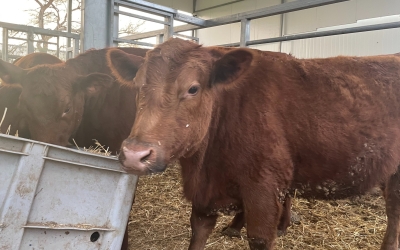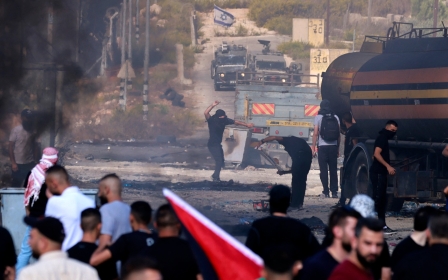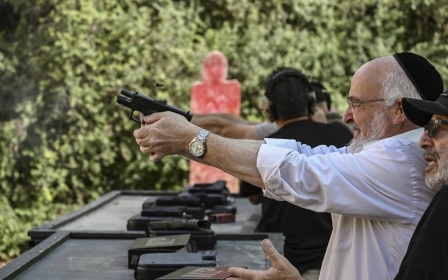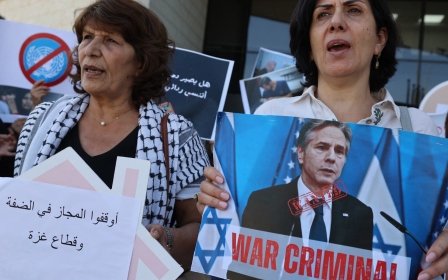Israel shuts down a town in the occupied West Bank, cancelling Eid for Palestinians
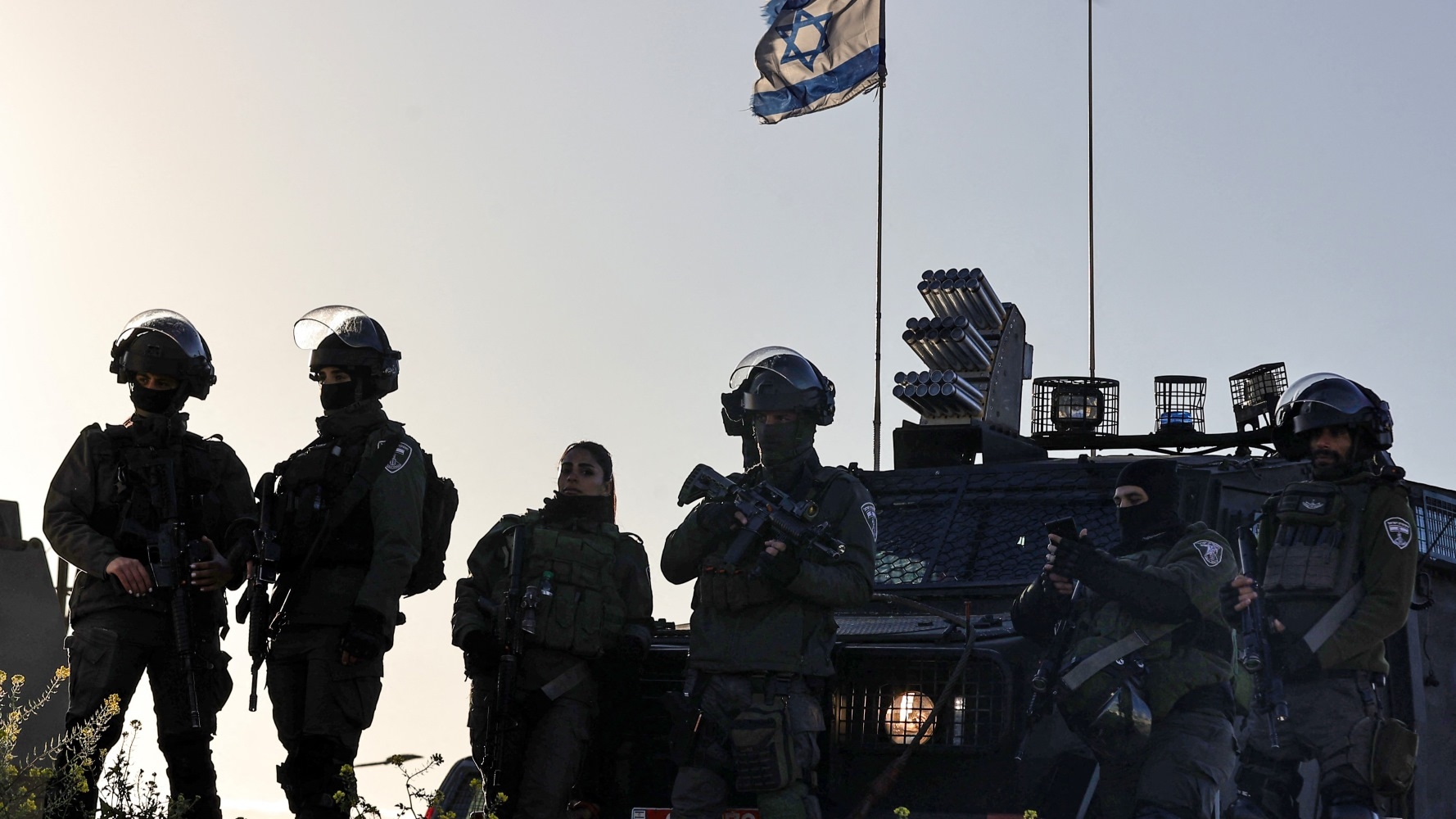
For the fifth day now, the Israeli army has imposed a comprehensive closure of the town of Jayyus, just east of the city of Qalqilya in the occupied West Bank, preventing its Palestinian residents from leaving their homes and walking around its streets.
The draconian measures, which coincided with the end of Ramadan and the Muslim festival of Eid, followed a shooting attack by a Palestinian gunman close to the nearby village of Nabi Ilyas.
Sunday’s shooting left an Israeli soldier seriously wounded and a civilian with light injuries.
Israeli officials claim that the Palestinian responsible fled to Jayyus and is currently hiding there.
As Palestinians stayed trapped indoors, Israeli soldiers closed entrances to the town by erecting barriers.
New MEE newsletter: Jerusalem Dispatch
Sign up to get the latest insights and analysis on Israel-Palestine, alongside Turkey Unpacked and other MEE newsletters
They were also deployed across its neighbourhoods, storming homes, conducting field investigations and detaining residents for hours at a time.
Jayyus is home to 5,000 people, a large number of whom work in surrounding villages and Qalqilya, which is less than five kilometres away.
They are also connected to neighbouring areas of the occupied West Bank by family ties. The Eid holiday is traditionally an opportunity for the residents of Jayyus to visit relatives in nearby villages and towns, but the ongoing Israeli operation has left its population unable to mark the religious celebration.
‘Cooperate with the IDF’
During the manhunt, Israeli troops have distributed leaflets in Jayyus, which read: “Cooperate with the IDF to reach the terrorist who we know is hiding here”.
They have also stormed houses in search of the suspect.
A Palestinian named Muhammad Khreisha posted a video on social media of him and his family sharing the final iftar meal of Ramadan as Israeli forces raided his home.
He told Middle East Eye about the moment dozens of troops stormed into the property.
“The soldiers opened the door and spread throughout, [searching] all the rooms while we were eating,” Khreisha said.
“They didn’t speak to us, but instead searched the house, moving furniture with force, causing panic for the children,” he added.
The soldiers confiscated a toy gun that Khreisha had bought for a younger relative.
Khreisha was fortunate, compared with other residents of the town.
Nazim Salim received the news on Tuesday that his home would be turning into a temporary base for the Israeli army.
The Israeli officer who told him allowed him to remove small items of furniture from the ground floor before soldiers took up residence at 4pm that day.
Salim and his family were confined to a room on the upper floor of the property.
“They stayed in the house for seven hours and during that time they turned it into a military interrogation centre,” Salim told Middle East Eye, adding that 20 young men were brought there.
“They were handcuffed, blindfolded, and thrown on the ground,” he said.
Salim cannot say for sure whether the young men were beaten during their interrogation, but he heard “violent sounds” from the floors below.
“We found traces of gas grenades and there was general vandalism in the house after the soldiers left,” he said, adding that the youths were released after hours of questioning.
Collective punishment
Israeli authorities have concluded that there is no other place the attacker involved in Sunday’s attack could have gone except Jayyus.
The town's residents are collectively paying the price to ensure the suspect cannot escape.
Fadi Jayyusi, a journalist and activist from the town, told MEE that Israeli military vehicles surrounded the town soon after the attack and prevented anyone from entering or leaving.
'Nobody leaves their house, children are not filling the streets to play as they usually do'
- Fadi Jayyusi, journalist and activist
Residents who happened to be elsewhere at the start of the siege have had to find shelter in nearby villages.
As of Wednesday evening, a total curfew was in place in all of Jayyus's neighbourhoods, forcing residents to stay indoors.
These restrictions mean there were no Eid celebrations.
“Eid in the town has been different from previous years,” Jayyusi said. “Nobody leaves their house; children are not filling the streets to play as they usually do.
“The town is normally crowded with visitors from other villages during Eid, but this time round it has become a ghost town.”
Other residents also say their properties were turned into makeshift Israeli bases.
There are around 1,000 soldiers involved in the operation to shut down Jayyus, according to activists familiar with the situation.
They report that many of the troops are foreigners, as they have been heard talking in languages that they do not recognise.
Residents also say that Israeli forces act very aggressively and are quick to beat and abuse Palestinians they encounter.
“What is striking is that during this campaign, soldiers deliberately confiscated children’s toys and destroyed them, which were their only entertainment during Eid,” Jayyusi said.
Middle East Eye delivers independent and unrivalled coverage and analysis of the Middle East, North Africa and beyond. To learn more about republishing this content and the associated fees, please fill out this form. More about MEE can be found here.


